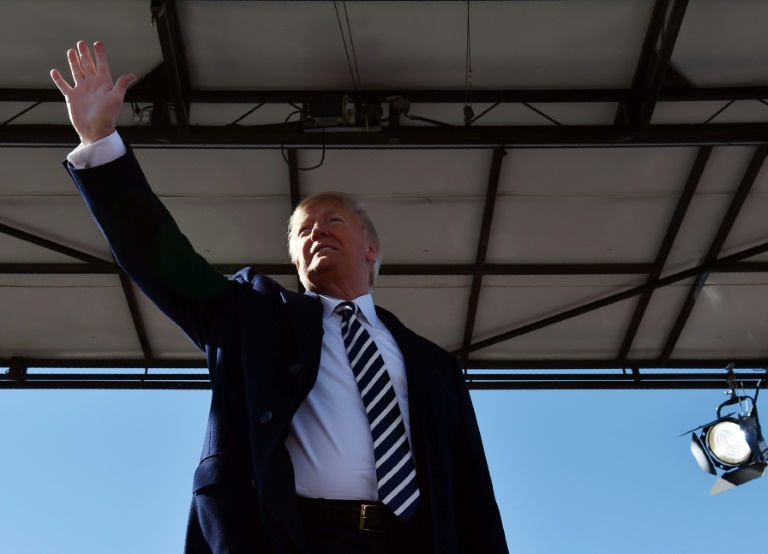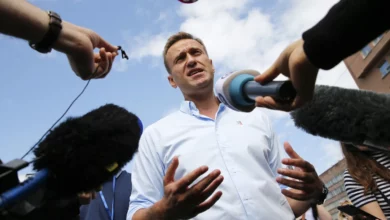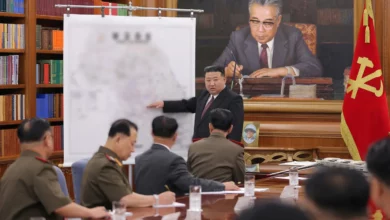
Moscow on Sunday warned US President Donald Trump that his plan to ditch a Cold War-era nuclear weapons treaty with Russia was a dangerous step.
Russian deputy foreign minister Sergei Ryabkov said this “would be a very dangerous step” and accused the US of risking international condemnation in a bid for “total supremacy” in the military sphere.
He insisted that Moscow observed “in the strictest way” the three-decade-old Intermediate-Range Nuclear Forces Treaty, known as the INF, while accusing Washington of “flagrant violations.”
The treaty was signed in 1987 by the then US president Ronald Reagan and Soviet leader Mikhail Gorbachev.
But Trump on Saturday claimed Russia had long violated it.
“We’re the ones who have stayed in the agreement and we’ve honored the agreement, but Russia has not unfortunately honored the agreement, so we’re going to terminate the agreement and we’re going to pull out,” he told reporters.
“Russia has violated the agreement. They’ve been violating it for many years. I don’t know why president (Barack) Obama didn’t negotiate or pull out. And we’re not going to let them violate a nuclear agreement and go out and do weapons (while) we’re not allowed to.”
Trump’s National Security Advisor John Bolton was set to arrive in Moscow on Sunday evening and meet next week with Russia’s Foreign Minister Sergei Lavrov.
That comes ahead of what is expected to be a second summit between Trump and Russian leader Vladimir Putin this year.
Bolton was also set to meet with Security Council Secretary Nikolai Patrushev and Putin aide Yuri Ushakov. Kremlin spokesman Dmitry Peskov said a “possible meeting” was being prepared between Putin and Bolton.
Deputy foreign minister Ryabkov said Sunday he hoped Bolton would explain the US plans “more substantively and clearly.”
The Trump administration has complained of Moscow’s deployment of 9M729 missiles, which Washington says can travel more than 310 miles (500 kilometres), and thus violate the INF treaty.
The treaty, which banned missiles that could travel between 310 and 3,400 miles, resolved a crisis that had begun in the 1980s with the deployment of Soviet SS-20 nuclear-tipped, intermediate-range ballistic missiles targeting Western capitals.
US or Russia at fault?
A Russian foreign ministry official earlier accused Washington of implementing policy “toward dismantling the nuclear deal”.
Washington “has approached this step over the course of many years by deliberately and step by step destroying the basis for the agreement,” said the unnamed official, quoted by Russia’s three main news agencies.
The official accused the US of backing out of international agreements that put it on an equal footing with other countries because it wanted to protect American “exceptionalism.”
Russian senator Alexei Pushkov wrote on Twitter that the move was “the second powerful blow against the whole system of strategic stability in the world” after Washington’s 2001 withdrawal from the Anti-Ballistic Missile treaty.
“And again, the initiator of the dissolution of the agreement is the US,” he added.
Bolton himself is pressuring Trump to leave the INF and has blocked talks to extend the New Start treaty on strategic missiles set to expire in 2021, according to The Guardian newspaper.
US withdrawal from the INF “will destroy any prospects of extending the New Start treaty,” the head of the Russian senate’s foreign affairs committee Konstantin Kosachev warned on Facebook.
A US withdrawal from the INF could also target China. As a non-signatory, Beijing can develop without constraints intermediate-range nuclear weapons.
US-Russia ties are under deep strain over accusations that Moscow meddled in the 2016 presidential election. The two countries are also at odds over Russian support for the Syrian government in the country’s civil war, and the conflict in Ukraine.
On Friday, the US Justice Department indicted the finance chief of Russia’s leading troll farm for allegedly interfering with US elections, the first person to face charges involving the 2018 congressional mid-term vote.
Russia accused the US of fabricating the charges.
While no new summit between Trump and Putin has yet been announced, one is expected in the near future.
The two leaders will be in Paris on November 11 to attend commemorations marking the centenary of the end of World War I.
A senior Trump administration official, who spoke on condition of anonymity, said another potential date could be when both presidents attend the Group of 20 meeting on November 30 to December 1.




